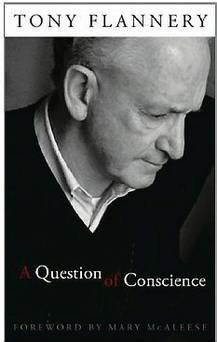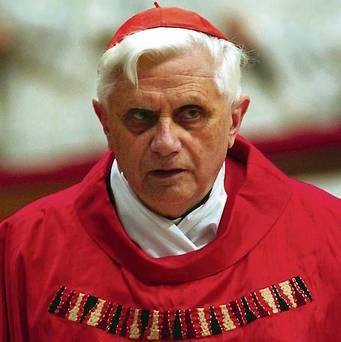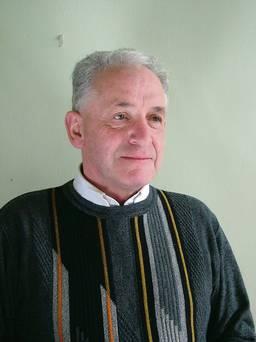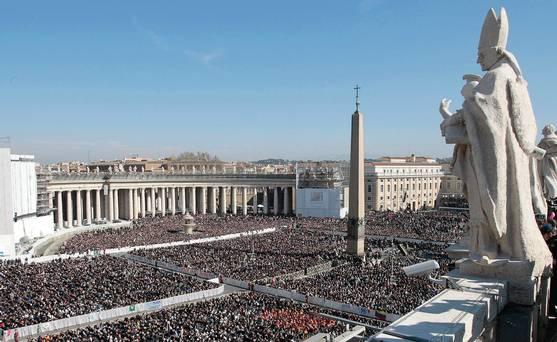Review: Tony Flannery's 'Question of Conscience'
By Dermot Keogh
Written by the well known Redemptorist priest Tony Flannery, this book ought to be his reflections on more than 40 years' service to the Gospel and to the Catholic community in Ireland. During that time, Fr Flannery preached tirelessly at parish and school retreats around the country, holding novenas in towns and cities that frequently attracted large congregations to usually empty churches. In the process he became one of the best known and most valued spiritual leaders in the country among ordinary Catholics. That's what this book should have been about – his service to the Catholic community in Ireland and what that has taught him. Instead, this slim volume, with a foreword by former President Mary McAleese, chronicles Fr Flannery's painful journey since February 2012 when he was 'silenced' by the Vatican. Being 'silenced' means he was forbidden from saying Mass, hearing confessions, conducting retreats, leading novenas or otherwise practising his ministry as a priest. So one of the best-known and most-valued priests in Ireland, a man regarded with respect and affection by so many Catholics here, has been stopped in his tracks – his life's mission brought to an abrupt halt. Why? Because of his work as a founder member of the Association of Catholic Priests (ACP). And also because of some passages in articles he had written for the Redemptorist magazine Reality. Both of these matters had come to the attention of the Congregation for the Doctrine of the Faith (CDF) in Rome, the body Cardinal Joseph Ratzinger presided over before becoming Pope. The CDF has existed for centuries and is the powerful church body based in the Vatican whose job it is to promote and safeguard Catholic doctrine and take action when there are transgressions among the clergy or the faithful. The CDF presumably did not like the perceived potential challenge to the existing power structure in the Catholic Church in Ireland which the ACP represented. And the CDF presumably did not like some of the views Fr Flannery had put forward for discussion in his monthly column in Reality, on issues like the attitude of the church to sexuality, birth control, celibacy and the ordination of women, among other topics. When the weight of the Vatican fell on him, he had not seen it coming. Remote from the workings of the Holy See because of his pastoral ministry here, Fr Flannery explains in his book how it came as "a shock, a bolt from the blue" when he was telephoned to be told that the CDF "had their sights" on him. Over the following period he was told that he had to issue a public statement, saying he accepted all the moral teachings of the church and also that he accepted that women could never be priests. He was also warned about the requirement for total secrecy about the involvement of the CDF and forbidden from having any dealings with the media on the matter. Born in 1948, at 12 he entered the minor seminary of the Redemptorists in Limerick as did two of his brothers. He went to the major seminary at 17 and was ordained 10 years later. Very typical of his generation, his formation was infused with the changing ideas generated by the Second Vatican Council for which he never lost enthusiasm. He confesses that for someone who grew up in the 1950s it was not easy to shed the fear of authority. Summoned to Rome to meet the superior general of his order in February 2012, he was a worried man and even more so when he was told that he was in serious trouble and that Cardinal Lavada, head of the CDF, was taking personal charge of his portfolio. Fr Flannery was handed two A4 pages on un-headed and unsigned paper by his superiors and it was made clear to him that they had come from the CDF. The first page contained four extracts from articles he had written for Reality relating to structures in the church and the need for reform, the nature of priesthood, the new missal, priestly celibacy and the role of women in the church. On the second page, his superiors were ordered to "seek to impress upon Fr Flannery the gravity of his situation". He was not to be allowed to write or to give newspaper interviews. Further, he was to be instructed to withdraw from his leadership role in the ACP and also from public ministry and to undertake a period of spiritual and theological reflection. He was angry as he wondered who "those faceless people were who had produced this document" of diktats and given them to his superiors. He wanted to confront his CDF accusers face to face, to show them that their quotations from his articles were cited out of context. He has not, to date, been given that opportunity. This book shows how its author grew very critical of his Redemptorist superiors in Rome as the process developed. Fr Flannery argues that, instead of standing up for him, they had bought into the way of thinking and acting of the CDF and of repeatedly going 'cap-in-hand' to the Vatican authorities. He became convinced that his superiors in Rome had "signed up to the Vatican's way of doing things, which decreed that when it came to the test I as an individual would not be of any real significance . . . [and] I would be viewed as dispensable". Returning to Ireland, Fr Flannery wound up his pastoral duties. He did not publish or give interviews and entered into a period of reflection in a retreat house in Ireland. However, he did not stop work with the ACP, which openly supported him. In early summer last year Fr Flannery received another document from the Vatican, the contents of which exacerbated an already delicate situation. He had two meetings with his superior general, one in Ireland and the other in Rome. In Rome he was told there had been another "very angry letter" from Cardinal Levada. Back in Ireland, his period of reflection having ended, he resumed his pastoral duties while preparing a response to the new Vatican document, which he sent to his superiors in late June last year. Fr Flannery was relieved when he heard that the outcome of the meeting had been positive. But there was a new twist to the story. By September last year, with a new head of the CDF – Cardinal Muller – in place, there were further demands that the author's statement be amended. New instructions to discipline Fr Flannery were issued: he was to go on a further extended period of reflection to a retreat house outside of Ireland and he was to cease all involvement with the ACP. Believing he was being bullied by the CDF and his superior general, he again felt angry and prepared an extensive response. But under direction from the Vatican, when Fr Flannery refused to cease contact with the ACP, his superior general invoked rule 73, number 3, of the order. This imposed a 'formal precept of obedience' which obliged him to obey or run the risk of being dismissed from the order. Fr Flannery refused to conform or sign any pledge. In mid-January this year, the author went public, giving an interview to The New York Times and holding a press conference in Dublin outlining his case. He has continued to speak in favour of church reform since then. The election of Pope Francis this year may help find another way to deal with dissent in the Catholic Church which does not involve the abrogation of the rights of the individual and the use of a system of personnel management that is as archaic as it is unchristian. It will be interesting to see if the new regime in the Vatican will allow Fr Flannery to explain his views and to clarify matters face to face. While this volume is a very personal account, and other voices need to be heard and recorded, I am glad as an historian that this book has been published. I wish the author – and other 'silenced' Irish priests – the strength and courage to see things through to a just end.
|
.
Any original material on these pages is copyright © BishopAccountability.org 2004. Reproduce freely with attribution.



